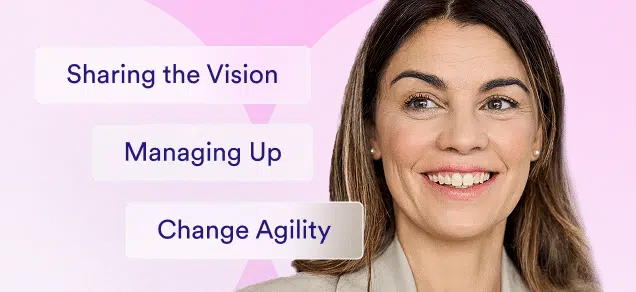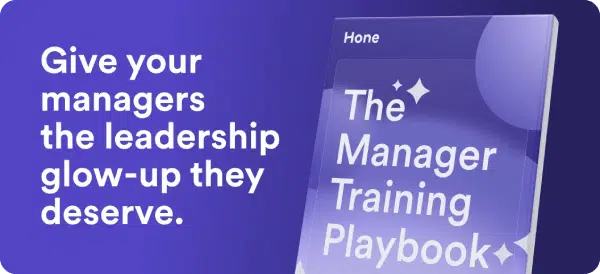What are Soft Skills?
Soft skills are a set of personal attributes and social skills that enable individuals to communicate effectively, collaborate with others, and work well in teams. These skills are also known as interpersonal or people skills, and employers highly value them as they contribute to the overall productivity and success of an organization.
Soft skills are a substantial part of an individual’s personality. Individuals are born with soft skills, but they also develop from experiences. Furthermore, people can learn soft skills by participating in training programs.
Soft skills also describe emotional intelligence (EI). EI is the ability to comprehend, use, and manage emotions. High EI allows people to connect, converse, alleviate stress, and overcome conflict.
3 Aspects of Emotional Intelligence:
- Self-awareness, or the ability to understand one’s actions, emotions, and thoughts
- Self-management, or the ability to take responsibility for one’s behavior and well-being
- Social awareness, or the ability to consider others’ perspectives
Relationship management uses the three aspects to maintain connections with others successfully.
Soft Skills in Management
Soft skills benefit businesses when all employees practice them. After all, individuals need to interact with others in nearly every position. But leaders are particularly effective when they have strong, soft skills.
Managers who work well with workers of different generations and backgrounds usually have more productive teams. Additionally, they are better able to drive goals and business priorities. Below are some examples of how strong skills benefits managers:
- Organizations expect managers to have solid speaking capabilities. But great leaders are also good listeners. Being an active listener shows higher levels of respect and can improve conflict resolution.
- Negotiation can be part of the job description for many leaders. Leaders must consider what employees, clients, or associates want while remaining focused on pushing their agenda.
- Good leaders need to manage time by delegating tasks to direct reports. This means they need to choose the right people and provide clear instructions. In addition, efficient delegation empowers teams and employees.
In addition to encouraging productivity, leaders with soft skills can build a workplace of belonging with vulnerability and empathy. A positive company culture enhances the business’s brand and attracts top talent.
Furthermore, good managers prevent productivity and financial loss from vacant positions. The number one reason employees leave their jobs is because of a bad manager.
5 Soft Skills Categories and Examples
Soft skills fall into five main categories. Although these characteristics can be carried over to any position, some are exceptionally valuable for management.
Managers and coworkers need communication and teamwork skills to work together effectively. Likewise, time-management skills help employees meet deadlines. Additionally, problem-solving and critical-thinking skills help employees make informed and reasoned decisions.
Managers and leaders need these soft skills and leadership proficiencies. Their ability to build a team and resolve conflicts directly influences the company’s culture. For instance, management must effectively communicate with their direct reports.
1. Communication Skills
The ability to listen and speak contributes to communication skills. Employees use these skills to give and receive different types of information, from discussing daily activities to sharing status updates and ideas.
- Active/Empathic listening is attentiveness to the speaker. It involves concentrating on what is being said and the unsaid, such as body language. In addition, the speaker must recognize the listener’s full attention.
- Confidence is the affinity to trust oneself. It helps individuals control their emotions and make decisions.
- Conflict management/resolution helps workers deal with conflicts in the workplace. These proficiencies also fall into the teamwork category.
- Friendliness is the capability to be cordial. People receive information more readily from those they deem friendly.
- Negotiation is a back-and-forth dialog to reach an arrangement on disagreeing issues. Strong negotiators add a sense of power to the bargaining table. As a result, they are more likely to achieve their ideal outcome.
- Public speaking is the act of addressing a live audience. Great public speakers can boost their and their organization’s reputation.
Workers use various communication methods, including in-person conversation, telecommunication, and the written word.
2. Teamwork Skills
Teamwork is the ability to collaborate with a group to achieve a common goal. Coworkers need social (or teamwork) skills to work amicably and handle disagreements.
- Collaboration is working with someone or a group on a task. Employees who collaborate can leverage the most out of others and a team.
- Empathy is the understanding of what other people feel. It’s seeing someone’s point of view and picturing themself in their place.
- Interpersonal skills help individuals understand others’ behaviors or signals. People who possess these skills can connect with and influence others.
- Rapport-building is the development of a connection, mutual trust, and affinity with someone. Employees can nurture professional relationships with this soft skill.
- Respectfulness is the practice of showing deference. Respectful employees appear more trustworthy. Unfortunately, they also cultivate a perception of status and power.
Teamwork is a social skill that advances career objectives. Even those who work solo can benefit from these skills.
3. Time Management Skills
Time management ensures that workers perform efficiently and productively. As a result, organizations prefer to trust employees to complete tasks even when they’re not with them.
- Ambition has a strong desire to succeed. Ambitious workers have the drive to finish tasks timely and well.
- Detail-oriented is the interest in paying attention to small details. Detail-oriented employees produce accurate and high-quality work.
- Diligence is making careful and persistent efforts. A high work ethic is a favorable trait for employees and is often the key to success.
- Prioritization is the process of organizing things by importance or urgency. Employees who can prioritize tasks increase effectiveness. Additionally, they are more likely to overcome resistance to change in the workplace.
- Motivation is drive. Motivated employees finish projects. They can also encourage others to be more productive through their enthusiasm.
- Work ethic is an inherent belief that hard work is a reward or a moral good. Employees with a strong work ethic often have higher performance levels.
Employees need time-management skills in almost all roles. But these skills are beneficial in hybrid and remote work environments.
4. Problem-Solving & Critical-Thinking Skills
Employees with problem-solving and critical-thinking skills can identify and address problems. They can also make sense of complicated information.
- Analysis/Analytical thinking is breaking down data into smaller pieces. As a result, analytical employees can transform information into an actionable plan.
- Creativity is generating original ideas. Therefore, imaginative workers are perfect for creative roles. Additionally, they can draw connections more easily.
- Innovative is the act of introducing new and creative ideas. Innovative employees can increase productivity by thinking outside the box.
- Investigative is the concern of looking into something methodically. As a result, investigative workers can more easily find overlooked problems and solutions.
- Questioning is showing interest in learning new information. Questioning employees want to find answers and insight. Additionally, they foster other soft skills and positively confront standard practices.
Workers with these skills challenge predetermined ideas to determine the most-fitting path.
5. Leadership Skills
Good leaders motivate their teams to work cohesively for the top results. Thus, management with strong leadership skills can keep projects on schedule and reinforce teamwork.
- Adaptability is the quality of dealing with change. Change is constant and inevitable, so leaders must be flexible.
- Decision-making is making thought-out choices grounded on available information. Strong leaders make timely decisions based on data, experience, and critical-thinking skills.
- Delegation is assigning tasks and responsibilities to others. Leaders can work efficiently by strategically delegating tasks. Additionally, they ensure employees have the abilities and resources to fulfill the challenge.
- Intercultural fluency is familiarity with and respect for other cultures. Inclusive leaders amplify their team’s abilities and potential.
- Reliability is the quality of being dependable and trustworthy. Employees are more likely to listen to and follow a leader they can depend on and trust.
- Team-building is the process of getting people to work collaboratively. Leaders need this skill to keep teams working effectively.
Leaders strategize, communicate, and take action. But the best leaders are also inspirational role models that build morale.
Soft Skills Learning
Soft skills learning is training to help develop or improve interpersonal skills. How well individuals treat others is crucial for personal and career success. Positive interactions and relationships stem trust.
Learning and development (L&D) can also create a thriving company culture. It consists of lessons to advance communication, improve active listening, and empathize with others. Learning soft skills can help resolve and prevent conflicts.
Training can provide tips and strategies for evolving better practices. And practicing can strengthen deficient areas.
To improve soft skills, the person must be open to feedback and make decisions to change behaviors. Companies that value soft skill training encourage managers to pursue one of the various learning methods that work best for them.
Soft Skills vs. Hard Skills
Soft skills are often contrasted with hard skills, which are specific technical or job-related skills that are learned through training or education. While hard skills are essential for performing specific job functions, soft skills are crucial for building relationships, communicating effectively, and fostering a positive work environment.
Hard skills are measurable and quantifiable abilities. Employees gain these skills through formal training programs and concentrated effort. They often need these skills to perform a specific job successfully. For example, a doctor goes to medical school to learn how to diagnose and treat illnesses.
Some hard skills are more in demand than others. Therefore, organizations may test or evaluate their hard skills before hiring a prospective candidate. However, someone with excellent technical skills may only be productive with job-specific soft skills. For example, a programmer may have excellent coding skills but need help managing their time. So, they may produce flawless work but not for days or weeks after a deadline.
While hard skills are beneficial for specific jobs, soft skills are transferable. In addition, they make employees adaptive and flexible regardless of their position.
Soft Skills vs. Power Skills
Power skills is another term for soft skills. Again, the variation identifies the importance and value of these human qualities.
Employers look for desirable soft or power skills in job candidates. These traits are essential in every position. And employees with strong, soft skills are more successful in the workplace.
Other alternative names include:
- People skills
- Interpersonal skills
- Essential skills
- Noncognitive skills












